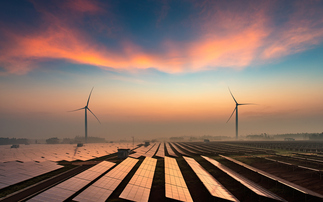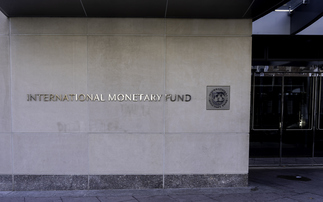Ceres' Mindy Lubber argues that the world's most powerful investment firms want to see an ambitious Paris Climate Agreement
From all corners of the world, we can hear sounds of applause at news that world leaders have agreed on a climate finance package. To be clear, it wasn't a congratulatory standing ovation at the finish line; it was the encouraging and excited applause that comes at the beginning of a long race.
Investors need supportive partners, strong political leadership and more ambitious policies in the journey toward a global low-carbon, climate-resilient economy.
New climate finance pledges were made at the annual World Bank and International Monetary Fund (IMF) conference in Lima, Peru. Acknowledging that the low-carbon journey will require $100bn a year by 2020 to support the transition and help developing countries adapt to climate change, international investors in Lima - from the World Bank and the European Investment Bank to government ministers - pledged an extra $15bn a year, which will be key to meet the £100bn target.
With less than 50 days to go before these same world leaders meet again in Paris for the United Nations Climate Change Conference (COP21), the IMF agreement was an important signal that urgent action - not empty talk - must be the end-goal of these gatherings.
In this regard, investors are ahead of the game. While politicians debate, investors move. Across all market sectors, they have witnessed the unbearable consequences and material risks that climate change is causing to communities, people and businesses. They are aware that inaction carries a heavy cost - and that waiting one second longer to take bold climate action is not an option.
Last month a group of 400 global institutional investors representing $24tr in assets and speaking in a unified voice called on governments to show strong political will and develop an ambitious global climate deal in Paris. A commitment by world leaders to a bold and clear long-term goal will enable investors to deploy more capital and unleash a wave of innovation.
Even before Paris, it's already happening.
In 2014, clean energy investments increased by 16 per cent to $310bn - a five-fold increase over a 10-year period. These clean investments come from institutional investors, commercial banks and electric utilities. The Swedish pension fund AP4 is committed to decarbonizing its entire $20bn listed equities portfolio. And a China utility-based energy efficiency finance program provides loans worth $790m - financing 226 projects and reducing emissions by 19 million metric tons of carbon. The clean investment movement is happening, but it is not enough and a Paris deal would help push it into the needed hyperdrive speed.
The International Energy Agency stated that global clean energy investments need to grow by an additional trillion dollars per year over the next 36 years if the world is to avoid more than 2C degrees of global warming that will lead to catastrophic and irreversible climate disruptions. There must be substantial changes in infrastructures, countries' developments' models, energy use and business strategies - all of which will require enormous investment.
At Ceres, we call this the "Clean Trillion". It is an ambitious and challenging goal, but it can be achieved. That's why investors are calling on policymakers to create bold and effective policies that will allow more actors to scale up the necessary low-carbon investments, and to do so across a wider range of sectors and countries.
The clock is ticking fast. We need to seize the historic opportunity that COP21 represents, because the world has been waiting for too long.
Mindy Lubber is president of Ceres, a nonprofit sustainability advocacy organizing mobilizing business and investor leadership on climate change, water scarcity and other global sustainability challenges. Ceres also coordinates the Investor Network on Climate Risk (INCR), a network of 110 institutional investors collectively managing more than $12 trillion in assets.
This article is part of BusinessGreen's Road to Paris hub, hosted in association with PwC









